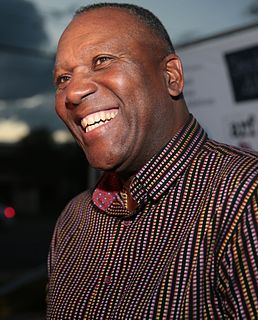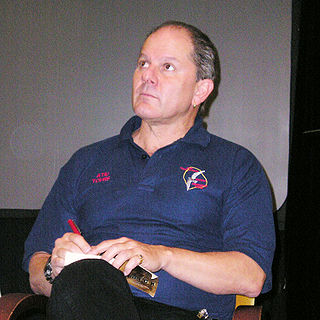A Quote by Howard Zinn
I am not an absolute pacifist, because I can't rule out the possibility that under some, carefully defined circumstances, some degree of violence may be justified, if it is focused directly at a great evil.
Related Quotes
Violence never really deals with the basic evil of the situation. Violence may murder the murderer, but it doesn’t murder murder. Violence may murder the liar, but it doesn’t murder lie; it doesn’t establish truth. Violence may even murder the dishonest man, but it doesn’t murder dishonesty. Violence may go to the point of murdering the hater, but it doesn’t murder hate. It may increase hate. It is always a descending spiral leading nowhere. This is the ultimate weakness of violence: It multiplies evil and violence in the universe. It doesn’t solve any problems.
In my humble opinion, non-cooperation with evil is as much a duty as is cooperation with good. But in the past, non-cooperation has been deliberately expressed in violence to the evildoer. I am endeavoring to show my countrymen that violent non-cooperation only multiplies evil and that evil can only be sustained by violence. Withdrawal of support of evil requires complete abstention from violence. Non-violence implies voluntary submission to the penalty for non-cooperation with evil.
You know, people see [August: Osage County], and I tell them that it's based on my family, and they assume that I came from some kind of horrible, hysterical circumstances. That's not true. My family, my nuclear family, was actually very close. My mom and dad were great parents and they encouraged a real rich, creative life for me and my brothers. My extended family, like every family, has some darkness, and some violence of some kind, emotional or otherwise, in their past.
All I ask of Fate is that the people she hurls into my life, whether they are evil or good, or morally bipolar, should be amusing to one degree or another.... The problem is finding smile-inducing evil people, because the evil are the most humorless, though in the movies they frequently get some of the best lines.
[Albert Camus]didn't have much hope that things would work out, but he wanted them to. Algeria had reached such a degree of violence that once such violence is created there's no more room for reflection. And there's no mediating position. If you look at Bosnia today, the Croats, Bosnians and Serbs, they've all created so much horror that one starts to wonder how these peoples can live together, after having done what they have. Already the violence has reached such a degree that everybody is living in hate, there's no possibility of reflection, no mediating position.
The Negro who experiences bitter and agonizing circumstances as a result of some ungodly white person is tempted to look upon all white persons as evil, if he fails to look beyond his circumstances. But the minute he looks beyond his circumstances and sees the whole of the situation, he discovers that some of the most implacable and vehement advocates of racial equality are consecrated white persons.







































